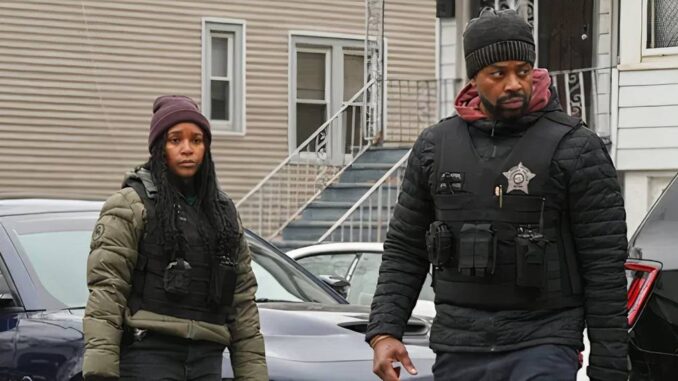
Breaking the Cycle: How Chicago PD Season 13 Can Redeem Hailey Upton By Honing Her Season 12 Narrative
Chicago PD, a procedural drama renowned for its gritty realism and morally ambiguous characters, has often stumbled when it comes to sustained character development. One of the most frustrating examples of this is the handling of Hailey Upton, a detective whose potential for complexity has been consistently sidelined in favor of plot-driven trauma and romantic entanglements. However, the seeds of redemption may finally be sown within the storylines of Season 12, providing a crucial foundation for Season 13 to finally address Upton's mishandling and build her into the compelling, multifaceted character she deserves to be.
For too long, Upton has felt like a series of reactions to external stimuli rather than a fully realized individual. We've seen her grapple with past traumas, navigate a complicated relationship with Halstead, and struggle with the ethical gray areas inherent in Intelligence. However, these experiences often felt like isolated incidents, failing to coalesce into a cohesive understanding of her character. Her actions, while occasionally heroic, were often impulsive and driven by a desperate need to prove herself, leaving viewers questioning her motivations and ultimately, her competence. This inconsistent portrayal has left many fans frustrated, feeling as though Upton’s potential for depth is constantly being squandered.
Season 12, however, offered a glimmer of hope. While specifics may vary (due to the ever-evolving nature of TV writing), the season hinted at a growing disillusionment within Upton, a creeping cynicism born from the constant exposure to the city’s underbelly and the compromises required to operate within the Intelligence Unit. Perhaps she grappled with the questionable tactics employed by Voight, witnessing firsthand the damage they inflict, even when serving a greater good. Maybe a case particularly resonated with her, exposing a personal vulnerability or forcing her to confront a long-held belief. Whatever the catalyst, Season 12 seemingly began to lay the groundwork for Upton to question her place within the unit and re-evaluate her personal code of ethics.
This nascent disillusionment is precisely what Season 13 needs to build upon. Rather than relegating Upton to a reactive role, the writers should seize the opportunity to delve into the internal struggle that Season 12 began to showcase. Instead of another trauma-induced spiral, Season 13 should focus on Upton actively grappling with the moral ambiguities of her job. Imagine scenes where she challenges Voight’s methods more directly, pushing back against the accepted shortcuts and demanding accountability. Imagine her seeking out alternative solutions, prioritizing community engagement and restorative justice over brute force and quick fixes. This wouldn't just be a matter of her questioning the rules; it would be about her actively searching for a better way, a path that aligns with her evolving moral compass.
Furthermore, Season 13 can deepen Upton's connection to the community she serves. Instead of solely focusing on high-profile cases and action-packed confrontations, the writers can explore her interactions with victims, witnesses, and community leaders. This could involve her volunteering with at-risk youth, mentoring aspiring law enforcement officers, or advocating for policy changes that address the root causes of crime. By humanizing her beyond her role as a detective, Season 13 can create a more empathetic and relatable character, one whose actions are grounded in a genuine desire to make a positive impact.
Finally, Season 13 can address the legacy of her relationship with Halstead. While their romance provided some dramatic tension, it often overshadowed Upton's individual growth. Instead of resurrecting tired romantic tropes, the writers should focus on the lasting impact of their relationship on Upton's personal and professional life. Perhaps she struggles with the emotional toll of losing him, learning to navigate the world as a single entity rather than a co-dependent unit. Perhaps she grapples with the ethical compromises they made together, questioning the choices they made in the name of love and justice. By acknowledging the complexities of their past, Season 13 can provide closure and allow Upton to forge her own independent identity.
In conclusion, the potential for Hailey Upton to evolve into a truly compelling character lies within the nascent narrative threads of Season 12. By building upon her growing disillusionment, exploring her connection to the community, and addressing the legacy of her relationship with Halstead, Chicago PD Season 13 can finally redeem Upton from her years of mishandling. Instead of a reactive character defined by trauma, we can finally see a proactive individual grappling with the complexities of morality and justice, forging her own path in the morally ambiguous world of Chicago PD. Only then will Hailey Upton truly become the complex and compelling character that she has always had the potential to be.
